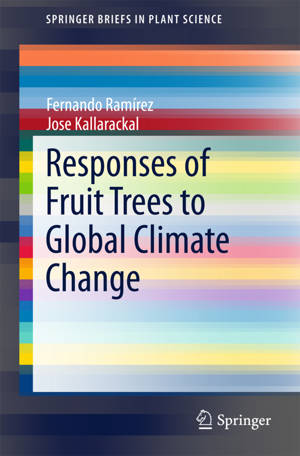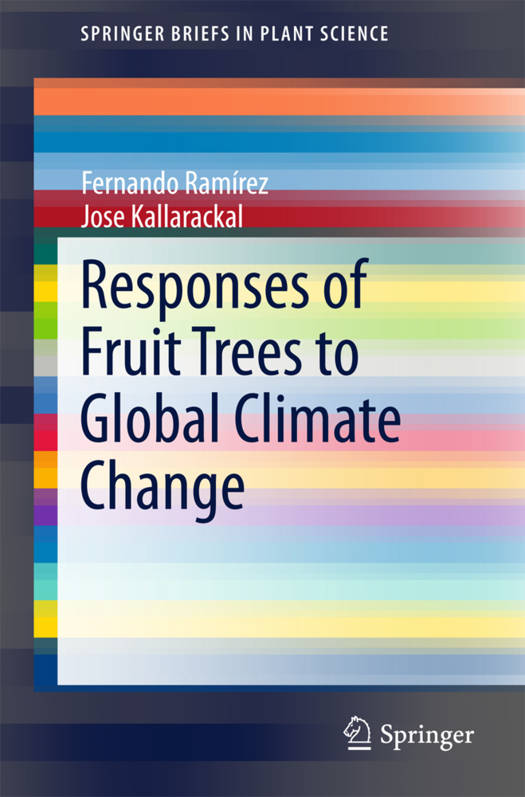
- Retrait gratuit dans votre magasin Club
- 7.000.000 titres dans notre catalogue
- Payer en toute sécurité
- Toujours un magasin près de chez vous
- Retrait gratuit dans votre magasin Club
- 7.000.0000 titres dans notre catalogue
- Payer en toute sécurité
- Toujours un magasin près de chez vous
52,95 €
+ 105 points
Description
Global climate change is expected to produce increased carbon dioxide levels in the atmosphere, higher temperatures, aberrant precipitation patterns and a host of other climatic changes that would affect all life on this planet. This review article addresses the impact of climate change on fruit trees and the response of the trees to a changing environment. The response of fruit trees to increasing carbon dioxide levels, phenological changes occurring in the trees themselves due to increased temperature and the lower chilling hours especially in the temperate regions, ecophysiological adaptations of the trees to the changing climate, impact of aberrant precipitation, etc. are reviewed. There is very little data on the impact of rising CO2 levels on fruit tree performance or productivity including the temperate region. Based on a large number of observations on the phenology, there is reason to believe that the flowering and fruiting of most species have advanced by quite a few days, but with variations in different crops and on different continents. The chilling hours have also grown shorter in many regions, causing considerable reductions in yield for several species. In the tropics, there is very little work on fruit trees; however, the available data show that precipitation is a major factor regulating their phenology and yield. The ecophysiological adaptations vary from species to species, and there is a need to develop phenological models in order to estimate the impact of climate change on plant development in different regions of the world. More research is also called for to develop adaptation strategies to circumvent the negative impacts of climate change.
Spécifications
Parties prenantes
- Auteur(s) :
- Editeur:
Contenu
- Nombre de pages :
- 42
- Langue:
- Anglais
- Collection :
Caractéristiques
- EAN:
- 9783319141992
- Date de parution :
- 21-01-15
- Format:
- Livre broché
- Format numérique:
- Trade paperback (VS)
- Dimensions :
- 156 mm x 234 mm
- Poids :
- 90 g

Les avis
Nous publions uniquement les avis qui respectent les conditions requises. Consultez nos conditions pour les avis.






